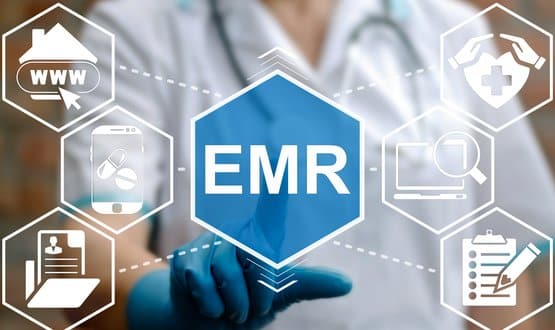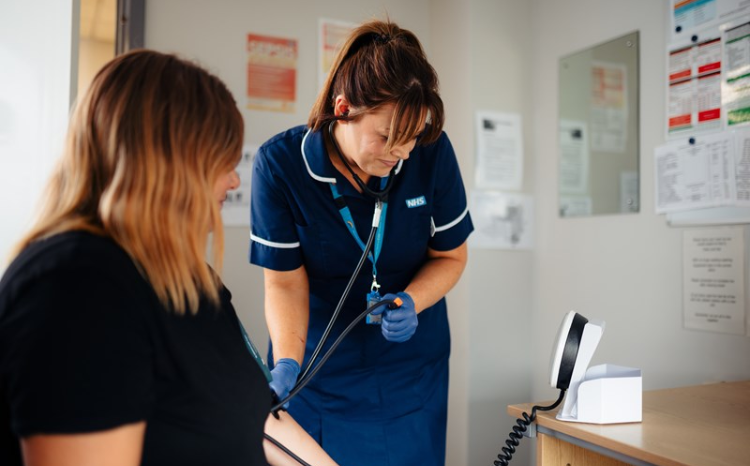Key suppliers of electronic medical records ‘need to be more interoperable’
- 10 December 2019

Key suppliers of electronic medical records need to do more to make their systems interoperable to “improve access to information” for millions of patients, a new study has found.
Researchers at the Institute of Global Health Innovation at Imperial College London examined inconsistencies with electronic medical record (EMR) systems across 152 acute hospital trusts in NHS England over a one-year period.
Some 49% of trusts were identified as using the same three systems, prompting researchers to call for these systems to be more interoperable to “improve access to information for more than one million hospital encounters every year”.
The three systems were operated by Cerner, used in 21 trusts; DXC Technology, used in 15 trusts; and System C, used in 13 trusts.
Overall researchers found NHS trusts were using at least 21 different systems, leading to “critical deficiencies”. Many of these systems are unable to effectively share information, putting patients who visit more than one hospital at risk, they found.
About four million patients were treated at two or more hospitals which had different EMR systems between April 2017 and April 2018.
Clinicians were unable to access a patient’s full medical record from another hospital some 11 million times in the same time period.
Though electronic medical records were designed to make combination across the NHS more interoperable, the study found 77% of hospitals who use an EMR still face “major difficulties”.
Lord Ara Darzi, lead author and co-director institute, said: “Electronic health records have been heralded as a solution to increasingly stretched healthcare systems, yet our research shows that the challenge is far greater than simple adoption of this innovation.
“It is vital that policy-makers act with urgency to unify fragmented systems and promote better data sharing in areas where it is needed most, or risk the safety of patients.”
Some 23% of NHS trusts were found to still be using paper records.
The study found of those using an EMR, there was limited regional alignment of the systems used to process and store these records. NHS England’s Local Health and Care Records Exemplar (LHCRE) programme aims to alleviate problems surrounding interoperability through providing reference sites for sharing patient data to better support care, and developing Integrated Care Systems.
Of the 117 trusts using electronic records, 79% employed one of 21 different commercially available systems, and 10% were using multiple different systems within the same hospital.
Markus Bolton, joint chief executive of the System C and Graphnet Care Alliance, said interoperability issues go “much wider than just sharing between acute hospitals,” adding that benefits from data sharing, including reduced admissions, emergency attendances and length of stay, are already being seen.
“It is important that policy makers understand the progress already made in this area. Graphnet is currently contracted to integrate data from 39 acute trusts, over 2,000 GP practices, 38 councils and 37 community, mental health or combined Trusts and the majority of these shared records are already in live use,” Bolton said.
“System C has 27 Trusts with its EPR and many of those are already sharing health and social care data with their care communities using shared records.
“In our experience data sharing is better achieved with a larger footprint via shared care records than by using trust to trust interconnectivity, although either method can be used if required.”
Distie Profit, country general manager for Cerner UK, added: “The Cerner health information exchange (HIE) groups together and shares data back within the clinicians’ workflow, not just Cerner’s EHR, but also on other widely available NHS and social care systems.
“The use of our HIE has expanded beyond just NHS organisations, with hospices now using the solution too. Today, our UK HIEs have 26,937 unique users, and on average are being accessed every eight seconds.
“While we are well aware that data connectivity is only the very first step towards full interoperability, we are also hugely proud of the benefits our continuous work with clients and industry partners is already delivering, and what this is set to enable in the near future.
“We provide open APIs for our solutions including our EHR and these are live in the UK, ready for clients to integrate with App providers and third parties. This was part of our work to support the Global Digital Exemplar programme.”
She added that Cerner was a founding member of INTEROPen, which aims to foster industry collaboration.
Researchers also found 20 pairs of hospitals commonly cared for the same patients, yet despite regularly sharing care, just two of these trusts used the same electronic health record systems.
The authors concluded that strategies to promote better data sharing should be targeted at these identified pairs of hospitals, in order to facilitate informed clinical decision-making and the delivery of safe care for patients.
The study was published in BMJ Open.






1 Comments
DXC are in far more Acute trusts than that with a mix of old isoft tech and newer lorenzo. Interoperability issues are far wider than who provides the PAS + or EPR
Comments are closed.